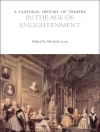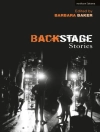Despite its international influence, Polish theatre remains a mystery to many Westerners. This volume attempts to fill in various gaps in English-language scholarship by offering a historical and critical analysis of two of the most influential works of Polish theatre: Jerzy Grotowski’s ‘Akropolis’ and Tadeusz Kantor’s ‘Dead Class’. By examining each director’s representation of Auschwitz, this study provides a new understanding of how translating national trauma through the prism of performance can alter and deflect the meaning and reception of theatrical works, both inside and outside their cultural and historical context.
Although theatre scholars have now gained familiarity with ‘Akropolis’ and ‘Dead Class’, there remains little understanding of the complex web of cultural meanings and significations that went into their making – they remain broadly but not deeply known. Grotowski and Kantor both sought to respond to the trauma of the Holocaust, albeit through drastically different aesthetics, and this study develops a comparative critical language through which one can simultaneously engage Grotowski and Kantor in a way that makes their differences evocative of a broader conversation about theatre and meaning. Ultimately, this volume invites and engages with many questions: how is theatrical meaning codified outside its cultural context? How is it codified within its cultural context? What affects the reception of a theatrical work? And, above all, how does theatre ‘make meaning’?
Inhaltsverzeichnis
Foreword by Kathleen Cioffi; Preface; Acknowledgments; List of Illustrations; Introduction; PART I: OUR AUSCHWITZ: GROTOWSKI’S “AKROPOLIS”; Chapter 1: Jerzy Grotowski: A Very Short Introduction; Chapter 2: Native Son: Grotowski in Poland; Chapter 3: Grotowski: The Polish Context; Chapter 4: Grotowski, the Messiah: Coming to America; Chapter 5: The Making of an Aura; Chapter 6: On Not Knowing Polish; Chapter 7: “In Poland: That is to Say, Nowhere”; Chapter 8: “Akropolis”/Necropolis; Chapter 9: The Vision and the Symbol; Chapter 10: “This Drama as Drama Cannot Be Staged”; Chapter 11: Two National Sacrums; Chapter 12: “Hollow Sneering Laughter”: Mourning the Columbuses; Chapter 13: Against Heroics; Chapter 14: Representing the Unrepresentable; Chapter 15: Trip to the Museum; Chapter 16: Bearing the Unbearable; Chapter 17: The Living and the Dead; Chapter 18: Jacob’s Burden; Chapter 19: The Final Descent; Chapter 20: Textual Transpositions; Chapter 21: “Akropolis” After Grotowski; ILLUSTRATIONS; PART II: OUR MEMORY: KANTOR’S “DEAD CLASS”; Chapter 22: Tadeusz Kantor: A Very Short Introduction; Chapter 23: “Dead Class”: The Making of the Legend; Chapter 24: “Dead Class” in Poland; Chapter 25: The Polish History Lesson; Chapter 26: “Dead Class” Abroad; Chapter 27: On Not Knowing Polish, Again; Chapter 28: The Visual and the Puerile; Chapter 29: The National and the Transnational; Chapter 30: Witkiewicz’s Tumor; Chapter 31: An Age of Genius: Bruno Schulz and the Return to Childhood; Chapter 32: Conversing with Gombrowicz: The Dead, the Funny, the Sacred and the Profane; Chapter 33: Panirony: “A pain with a smile and a shrug”; Chapter 34: Raising the Dead; Chapter 35: “Dead Class” as Kaddish…; Chapter 36: “Dead Class” as “Dybbuk, ” or the Absence; Chapter 37: The Dead and the Marionettes; Chapter 38: Men and Objects; Chapter 39: “Dead Class” as “Forefathers’ Eve”; Chapter 40: “Dead Class”: The Afterlife; Postscript; Appendix: Table 1. Chronology of Events; Table 2. Comparison between Wyspiański’s “Akropolis” and “Genesis”; Table 3. Comparison between Grotowski and Kantor; Notes; Bibliography; Index
Über den Autor
Magda Romanska is an award-winning writer, theatre scholar and dramaturg. Educated at Stanford, Yale and Cornell, she is currently Associate Professor of Theatre and Dramaturgy at Emerson College in Boston, and a research associate at Harvard University’s Minda de Gunzburg Center for European Studies.












